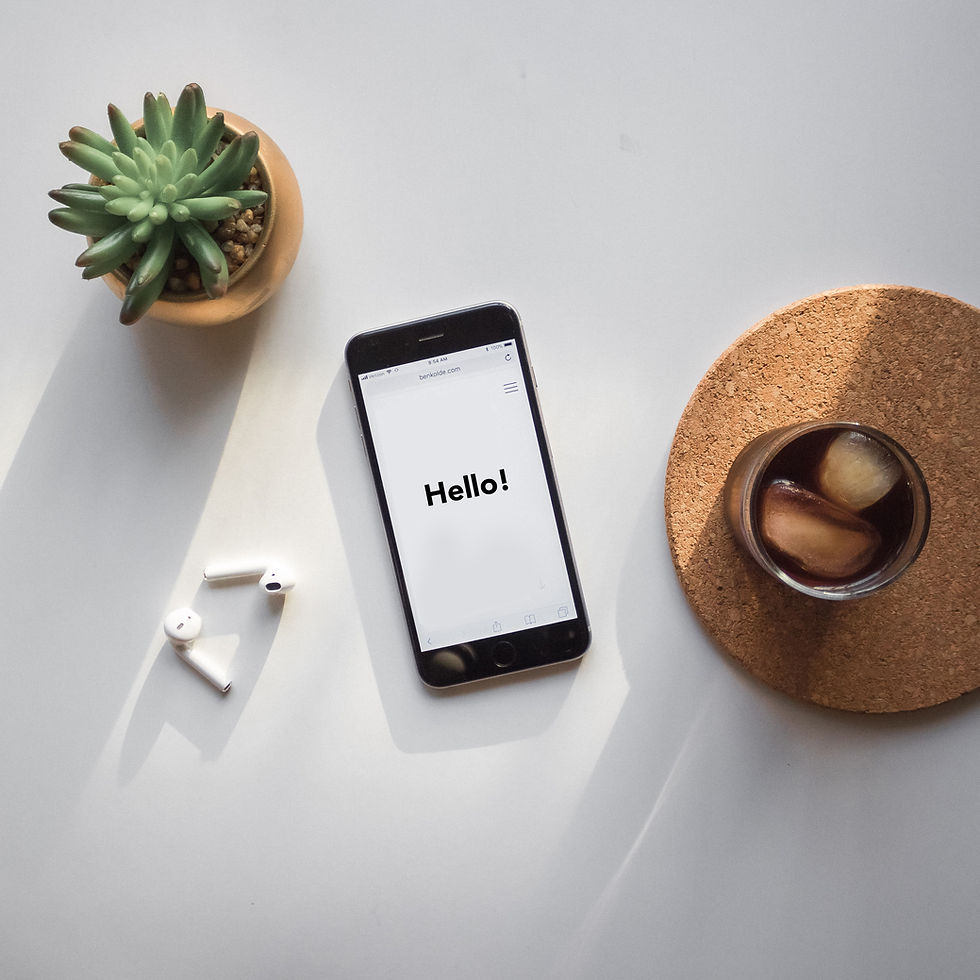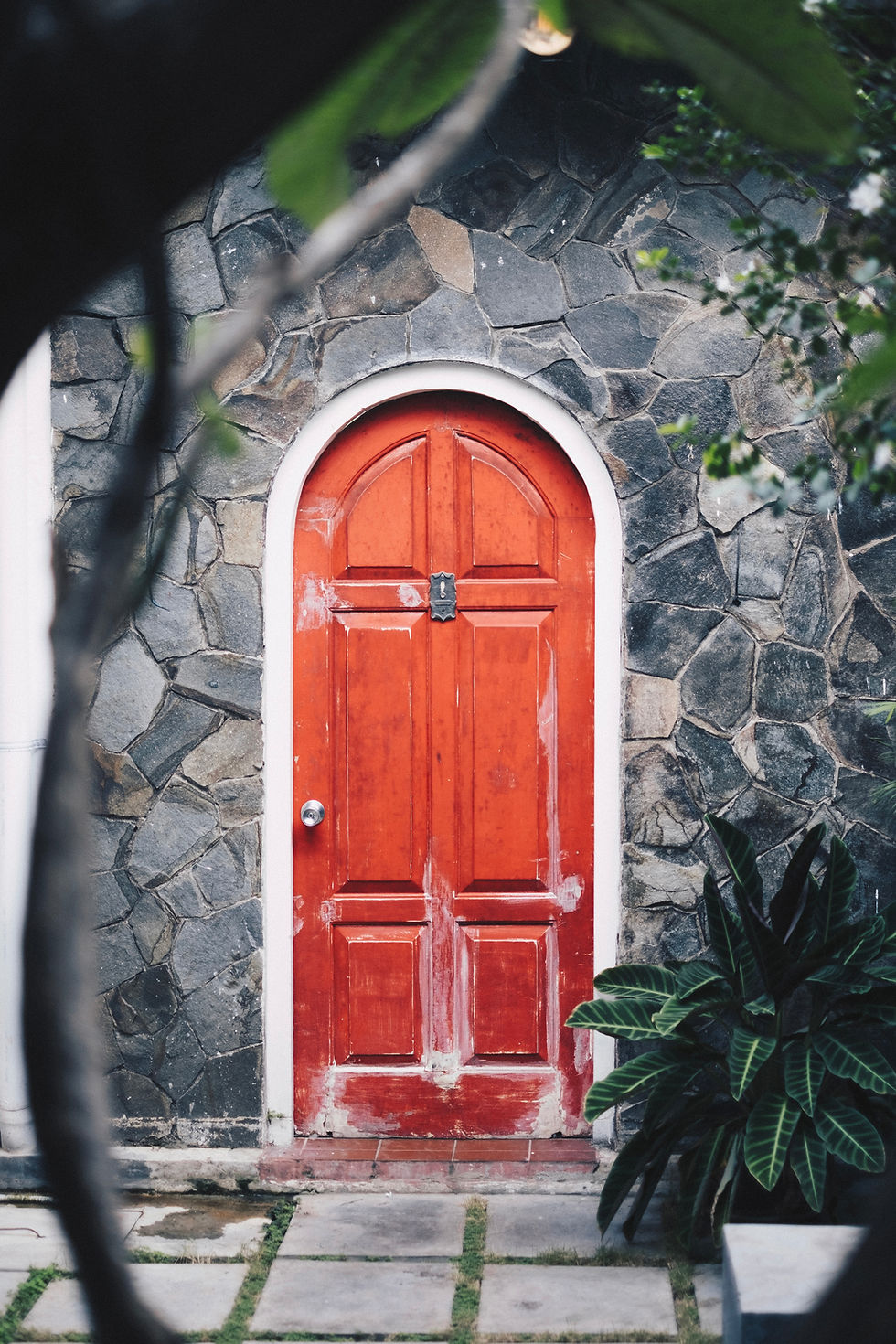The Coronavirus Coping Guide - Part I: Coping with Social Distancing
- Onward + Outward

- Mar 18, 2020
- 4 min read
Updated: Apr 24, 2020
by Dr. Janelle S. Peifer
The world turned upside down. We were living our daily lives--moving through our rhythms, routines, struggles, and joys when, quite suddenly, all things stopped. This global, insidious pandemic called the 2019 novel coronavirus (COVID-19) has shaken our shared consciousness and impacted our lives in profound ways. You may feel overwhelmed, heartbroken, anxious, angry, or something else entirely. As things change and evolve, I hope this series coping guide provides some concrete, accessible resources and techniques for coping during a pandemic.

The most important takeaway I want all readers to carry with them is that teletherapy can help during this crisis. This may be an excellent time to connect with a mental health provider in your area. Like all small businesses, therapists are hit hard by this crisis. More importantly, they want to and are well trained to support you in coping in large and small ways. Contact your insurance company or use a directory like Therapy for Black Girls or Psychology Today to find an excellent therapist. In the context of COVID-19, many mental health teleservices are covered by your insurance. If you're feeling stuck, overwhelmed, anxious, or need support and a space to process -- reach out to a therapist. You can book a free 15-minute consultation with our team online here. In gratitude to the work that healthcare providers are doing (and always do!), we're offering free, wellness teleconsults to healthcare providers that can be booked here.

Coping with...Social Distancing
The primary goal of "flattening the curve" of COVID-19's spread to protect those most vulnerable and give our hospitals and healthcare workers as much support as we all can makes sense. And it is difficult and comes with profound loss. In dialectical behavioral therapy we would explore this dialectic, seeking to explore, process, and reconcile seemingly opposing or contradictory ideas like acceptance/change, or in this case, a belief that social distancing is right and beneficial and that it can be difficult and impact of mental wellness in negative ways. Here are some ways to prioritize your mental health to care for yourself and make social distancing more sustainable for the public good:
Develop Routines. Humans thrive on routine. With such significant changes happening all at once be sure to develop a routine that works for you and/or your family. I suggest developing a skeleton plan and having a nightly (or morning for you diurnal folks out there!) meeting to review the schedule with your loved ones in the home or afar. At this time communicate needs ("my boss is doing a morning huddle, so can you take the children to play in the yard from 8-8.30a and I can give you some concentrated work time from 12-1p") and outline goals together. I think this a great time for an emotional check-in too. My husband and I do this three question check-in every day: 1) what went well, 2) what didn't go well, 3) what support do you need from me?
I work quite a bit with new parents and know this time offers a wonderful opportunity for partners at home together to think critically and creatively about how to share labor equitably and make time for each other's needs. Crisis provides an opportunity for us to show who we are to the world and those we love. You can show up in little and large ways!
I've created a template for a sample daily schedule here: bit.ly/covidsched. Feel free to use and share it. When you're making it your own be sure to include self-care and hygiene tasks, time to talk and process (or pray/reflect/pause), meals, physical activities, professional work (in a realistic, sustainable, probably pared down capacity), and time outdoors.

Be Gentle with Yourself. Are you used to be hyper-productive at work and worried about job security? Struggling with long stretches of time at home with your children (with no concrete end time or plan for when the Natural History Museum or music class will open again)? Transitioning to online teaching all of the sudden? Used to keeping a neat home that now looks like a disaster? Breathe. Be gracious with yourself. Remember that there's a pandemic on and that you are not expected to adjust immediately or do what you did before. Take gentle notice of negative thoughts and practice some techniques that can promote gratitude, self-compassion, and regulation. Here are some of my favorite resources:

Connect + Disconnect. Another dialectic! Social media and news can provide vital information, help us connect, and give us space to check out when we're feeling taxed. AND it can contribute to overwhelm, misinformation, anxiety, and stress. Utilizing tools like screen time/app clocks can help you monitor your usage. Most importantly, check-in with yourself throughout the day and note when you are checking your social media feeds compulsively or in a way that feels out of control or harmful. Setting limits on checking the news can help you get the information you need without drowning in the flood of constant streams of information and tension. Be sure to find time to connect with loved ones and maybe try out other forms of communication that were harder to maintain in the swirl of daily activities -- call your childhood best friend, write a letter to your mother in law, co-watch the Bachelor with your friends on Google Hangouts. Social connection will be vital for coping and staving off feelings of loneliness and isolation.

In the next post I'll discuss coping with COVID-19 anxiety and worry. Thinking of you all. Feel free to reach out if you'd like to connect: https://www.onwardandoutward.org/contact.
Stay well,
Janelle



Transport-related services and city mobility topics are structured within https://www.link.ua/city/dnepropetrovsk/transport/.
link link link link link link link link link link link link link link link link link link link link link link link link link link link link link link link link link link link link link link link link link link link link link link link link link link link link link link link link link link link link link link link link link link link link link link link link link link link link link link link link link link link link link link link link link link link link link link link link link link link link link link link link link link link link link link link link link link link